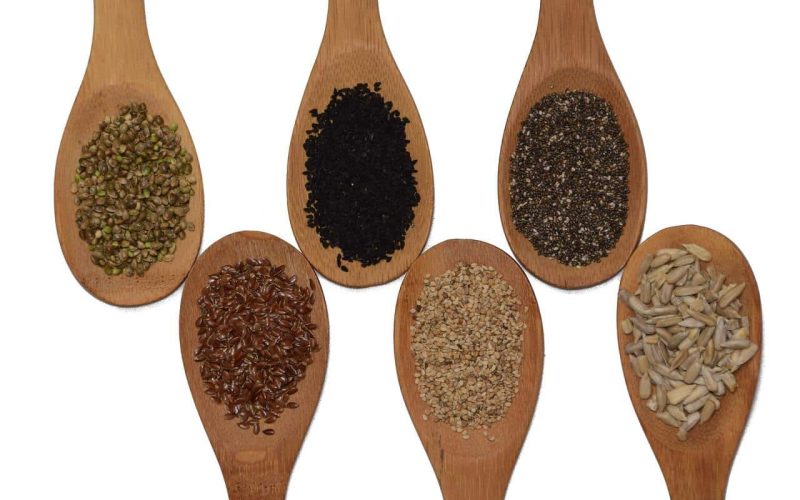The versatile spice cumin is one that you should always have on hand. It will quickly elevate your cuisine to the next level because it is nutty with touches of fresh citrus.
Take a big breath, and once you know there are some excellent substitutes for ground cumin, you won’t need to panic.
Cumin is an essential pantry ingredient since it can season a wide range of foods. Even though it has a distinct, earthy flavor and heat, what happens if you run out?
If you don’t have any ground cumin on hand, you may use many substitutes for ground cumin.
What is Cumin?
Cumin is a widely used spice in South Asia, the Mediterranean, and South and Central America. It belongs to the parsley family and is often sold as dried seeds.
It is frequently used in Mexican sauces, curries, and spice blends. Each seed has a dried fruit shell around it. These seeds are gathered and dried to be used as spices. Many different cuisines employ cumin, both whole and ground.
Cumin is a common component in both curry powder and chili powder. Its earthy flavor and fragrance make it ideal for stews, soups, curries, chili, and pickled meals.
Substitutes for Ground Cumin
Here are substitutes for ground cumin that you can use in your recipe or when you run out of your favorite spice.
1. Ground Coriander
Indian cuisine frequently uses the spice powdered coriander, commonly known as ground coriander. However, it may also be found in various meals and cuisines.
This is due to its adaptability. It readily accommodates the dish being used. It might be characterized as welcoming and mellow.
The powdered form of coriander is made by drying the seeds and grinding them. One substitute for cumin ground has a close affinity with coriander powder. Both taste earthy.
Additionally, they have bright, lemon-like notes. Because of their similarities, they complement one another well. Use half as much powdered coriander instead of cumin. Cumin is somewhat spicier than coriander.
However, coriander suits the flavor profile nicely since it has a little warmth and a lemony earthiness, especially if all the seeds are roasted.
Use the same quantity of coriander called for cumin in a recipe to replace it with a curry. If you need extra heat, add a pinch or two of cayenne after tasting the food for seasoning.
2. Caraway
Like coriander, caraway is a close relative of cumin. The seeds of caraway, a plant that belongs to the same family as parsley, resemble cumin very much.
These elements make it a suitable substitute for ground cumin. Caraway seeds have an earthy, somewhat toasty taste similar to cumin.
Additionally, these seeds have a slight anise flavor. They function especially well in recipes like curry, where a few whole cumin seeds are used to temper heated oil.
Caraway seeds can also be ground up and used in recipes for ground cumin. Typical uses for caraway seeds include rye bread and potato salad. Some Middle-Eastern or Indian spice combinations may also contain them.
It is milder than cumin and similar to coriander. Because of its heat and spice, you might need to add cayenne or pepper flakes.
As a general rule, substitute whole caraway seeds for cumin seeds. Use powdered cumin instead of the ground variety.
3. Curry Powder
Cumin is frequently used in curry powder for tastes like ginger, turmeric, and cinnamon. In Southeast Asian cuisines, this powder is a substitute for ground cumin.
But with so many different curries available, you might be unsure which one to use.
When deciding, choose a variety of coriander, turmeric, ginger, cinnamon, mustard, fenugreek seeds, and black pepper.
This seasoning’s turmeric content imparts a golden hue to your food. When substituting the two, use twice as much curry powder as cumin.
Use 1/2 teaspoon of curry powder instead of 1 teaspoon of cumin if a recipe asks for one teaspoon, and then gradually add more curry powder to taste.
In this manner, you might anticipate tasting something like the original spice. Certain varieties include cumin, ensuring you experience its distinctive flavor and scent.
4. Chili Powder
Chili powder is an alternative that works well because cumin is one of the main components in certain varieties.
The mixture may contain chili powder in addition to paprika, garlic powder, oregano, crushed cayenne, and onion powder.
This alternative works well when cooking a dish like pinto beans, but it might not suit the tastes of other cuisines, including Indian curries.
Chili powder may also give your food a scarlet tint due to its paprika and cayenne. Use half the amount of ground cumin specified in the recipe, just like you would with the other substitutes for ground cumin.
In the recipe, use 1/2 tbsp. (7 grams) of chili powder instead of 1 tbsp. (14 grams) of powdered cumin.
5. Taco Seasoning
This spice mixture contains cumin, oregano, garlic powder, onion powder, and all the other ingredients found in chili powder. In addition, salt, black pepper, and red pepper flakes are used in taco seasoning.
You may anticipate that these substitutes for ground cumin will add a more nuanced taste profile and a little more spice than cumin does on its own.
Additionally, remember that different taco seasoning mixes have different salt contents. Because of this, add taco seasoning to your dish before salt or other ingredients with high sodium content, such as Worcestershire and teriyaki sauces, from the supermarket. By doing this, you can prevent oversalting your food. Then, tweak it to your liking.
6. Garam Masala
The spices in this mix vary from blend to blend, although cumin is typically present in Indian and South African dishes.
It seems logical that garam masala, which contains cumin as a key ingredient, can substitute for ground cumin. The scent of cumin in garam masala is spicy, earthy, lemony, and faintly sweet.
However, if you want to utilize this option, be mindful of the components in this mixture, as they could overshadow your food.
Cinnamon and cardamom seeds are both present. Start with half the amount of garam masala and add more as you go along if the recipe calls for one teaspoon of cumin.
Start with half the recommended amount of cumin when substituting garam masala, then titrate to taste.
7. Paprika
A key ingredient in taco seasoning, paprika has a warm, fiery, and earthy flavor. It has a smokiness comparable to the spice’s depth and complexity but is less hot than ground cumin. Paprika has an earthy, smokey flavor like cumin.
Start with a tiny quantity and season because it’s not as bright or lemony as other types. Like curry powder, it will color your cuisine if you use a lot of it, but instead of yellow, it will be red.
Most people don’t mind this because the red makes the dish seem more appetizing. Since paprika lacks cumin’s zesty flavor, I’d advise adding some lemon zest when cooking. You may add some ground coriander to complete the dish’s taste.
This is your best option if you’re looking for a versatile substitute for ground cumin that pairs well with virtually anything.
8. Fennel Seed
Fennel seeds are substitutes for ground cumin spice, which is rather unusual. Fennel seeds, like cumin, cumin, and caraway seeds, are connected to parsley.
Fennel seeds can be used instead of cumin seeds if you are truly in need. The flavor of fennel seeds isn’t as earthy or hot as cumin. They also possess a distinct licorice flavor and an undertone of anise that cumin does not.
Your food will thus change somewhat from what you had anticipated. Crushed pepper can also be used to compensate for the lack of heat.
Their ideal use is in dishes that call for whole cumin seeds. Many foods benefit from the aromatic fennel seeds’ added crunch. Additionally, you may dry roast fennel seeds in a dry skillet to enhance taste before grinding them as substitutes for ground cumin.
9. Fenugreek Seeds
A spice with a distinct flavor profile could be useful if you don’t enjoy cumin’s earthy, slightly bitter taste. Uncertain about what to use as a substitute for ground cumin to provide more depth? Try fenugreek seeds.
Fenugreek is a fragrant spice that, whether used whole or ground, gives curries and roasted vegetables a rich perfume.
Additionally, they have high nutritional value, lower cholesterol, and improve intestinal health. They are also fantastic for caring for your hair and scalp!
These brilliant yellow seeds give your food a sweet, mustardy taste. For the finest results, add some cayenne or paprika for extra heat.
Start by substituting half as much fenugreek for the recipe’s specified amount of cumin. When more is needed, taste for seasoning and add more.
You may dry roast and powder them for use in marinades and sauces. However, adding them whole works best.








